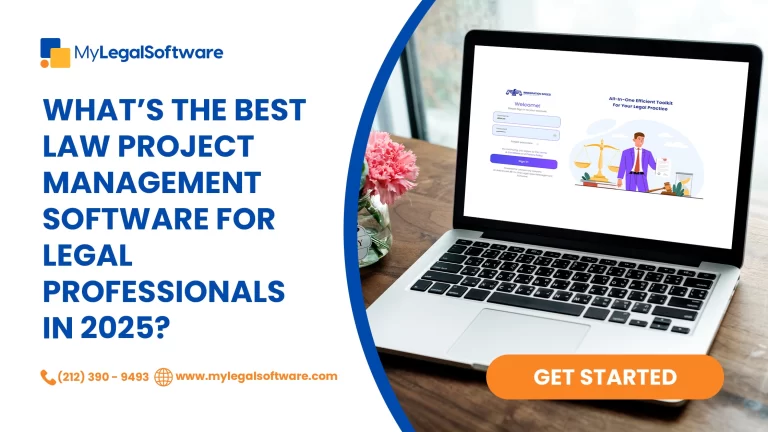Did you know that 75% of people never scroll past the first page of search engine results? If your law firm isn’t ranking well in the search results, you could be missing out on a significant number of potential clients.
In today’s digital age, mastering effective Search Engine Optimization (SEO) tactics is essential for lawyers who want to dominate the search results and attract valuable organic traffic to their websites. But how do you navigate the ever-changing SEO landscape and stay ahead of the competition?
In this article, we will explore the latest statistics that highlight the importance of SEO for lawyers and provide you with the key tactics you need to know to maximize your law firm’s online visibility.
What is SEO?
Search Engine Optimization, is the practice of optimizing a website’s visibility on search engines, helping it rank higher in search results and drive organic traffic.
By focusing on various optimization techniques, businesses do improve their online presence, attract more visitors, and ultimately achieve their marketing objectives.
Even if you are doing SEO for immigration law, family law or any practice at all, The aim of SEO enhances a website’s visibility for specific keywords or phrases that helps users search for on search engines like Google, Bing, or Yahoo.
By optimizing the website’s structure, content, and other relevant factors, SEO helps search engines understand the website’s purpose and relevance to specific search queries.
When your law firm achieves a high ranking in search engine results, particularly on the first page, it will attract a greater number of visitors to your website.
Unlike paid advertisements, SEO focuses on optimizing your website’s visibility in the organic search results.
Once visitors click on your website link from the organic results and find the relevant information they were seeking, they are more likely to reach out to you to explore your services further.
.
Does SEO work for lawyers?
Recent statistics demonstrate the effectiveness of SEO for law firms, showcasing tangible results in numbers.
It comes as no surprise that more and more law firms are embracing SEO as a powerful marketing channel and reaping the benefits.
According to a 2022 research study by Brandmuscle, an overwhelming 79% of law firms consider SEO to be the most effective marketing channel.
This finding aligns with the fact that Google serves as the primary driver of organic traffic for local businesses across various industries.
Ranking at the top spot in Google can lead to an average click-through rate (CTR) of over 30%. In other words, the first search result receives clicks from approximately one-third of users.
By leveraging SEO strategies, your law firm can aim for the coveted #1 position and significantly increase website traffic.
When it comes to digital traffic, local and organic searches account for more than 60%.A comprehensive study by Milestone Research analyzed 500 location-based businesses and discovered that local and organic searches combined contribute to a substantial 69% of all online traffic.
- This breakdown comprises 46.5% for organic search and 22.6% for local search.
- For the legal sector, organic search generates a remarkable 66% of call conversions.
This means that when users seek legal services and wish to contact law firms directly via telephone, organic search is their preferred channel.
A detailed analysis by Ruler Analytics in 2021 revealed the dominant role of organic search in generating phone calls for the legal industry.
- Directories play a significant role in driving organic search traffic businesses.
So Yes! Attorneys need to start thinking SEO..
Here’s how SEO works for lawyers and law firms:
1. By keyword Research:
SEO starts with thorough keyword research to identify the specific terms and phrases potential clients use when searching for legal services.
This research helps lawyers and law firms understand the search intent and behavior of their target audience, allowing them to optimize their website content accordingly.
2. Doing On-Page Optimization:
This involves optimizing various elements on your website to make it more search engine-friendly.
This includes optimizing meta tags, headings, URLs, and content using relevant keywords. Lawyers and law firms should ensure that their website provides valuable, informative, and engaging content that aligns with the needs and interests of their target audience.
3. Local SEO:
law firms targeting a specific geographic area, local SEO is essential.
This involves optimizing your website and online profiles to appear in local search results. Optimizing your Google My Business listing, including accurate contact information and positive reviews, can greatly enhance your visibility in local searches.
4. Link Building:
Building high-quality and authoritative backlinks is an important aspect of SEO. By obtaining links from reputable sources such as legal directories, industry publications, and relevant websites, law firms can improve their website’s credibility and visibility in search engine rankings.
Why is SEO important for law firms?
According to a survey by the National Law Review, 96% of individuals seeking legal advice conduct an online search.
However, when prospective clients search for law firms, they primarily use Google.
This highlights the increasing importance of having a well-designed law firm website and implementing effective SEO marketing strategies.
Google dominates the search engine market, accounting for 93% of all search engine traffic. With approximately 3.5 billion daily Google searches, your law firm’s ranking directly impacts your caseload and bottom line.
The higher your law firm ranks on search engine results pages (SERPs), the more visitors and potential clients you’ll attract. It’s crucial to be visible on the first page of search results since only a small percentage of users venture beyond the first page.
In fact, a mere 2 to 3% of people visit the second page of Google’s organic search results, and even fewer click through to a website once they reach it.
However, ranking on the first page is not enough; your goal should be to rank at the top.
Research shows that the first organic search result is up to 35 times more likely to receive clicks than the tenth result.
Today, users are more likely to choose one of the first three organic results and spend less than a minute considering their options before contacting a law firm.
Understanding Google’s Ranking Factors
There are four major ranking factors that your website needs to prioritize in order to rank in top spots on Google and achieve better SEO. These factors include:
(1) Great content,
(2) Link-building,
(3) Technical SEO,
(4) User experience (UX).
Let’s dive into these ranking factors and take a deeper look at each one of these below.
1. Content:
Your website’s content should include practice area pages, blogs, resources, images, and videos that provide valuable and helpful information to potential clients.
It’s important to address users’ keyword searches and queries, answering their questions clearly and concisely.
Optimizing your content with relevant keywords and variations will drive more traffic to your website.
2. Link-Building:
When you incorporate backlinks into your website-content, it plays a crucial role in establishing the credibility and authority of your website.
When reputable websites link to your content, it signals to Google that your content is trustworthy and valuable.
Obtaining high-quality backlinks from sources such as social media platforms, legal directories, Google My Business, and third-party review sites can enhance your local SEO efforts.
3. Technical SEO:
Implementing technical SEO strategies ensures that your website is optimized for search engines.
This involves using header tags, title tags, alt text for images, internal and external links, and maintaining a clear site structure.
Improving technical SEO helps search engines crawl and index your web pages effectively.
4. User Experience (UX):
Google considers user experience as a ranking factor. A user-friendly and visually appealing website that provides a seamless navigation experience is essential.
Core web vitals, mobile-friendliness, serving your website over HTTPS, and avoiding intrusive interstitials are crucial elements of providing a positive user experience.
Prioritizing these ranking factors will improve your website’s visibility, attract potential clients, and establish your law firm as a reputable and trustworthy source of legal services.
Ensuring a proper SEO setup:
The beauty of technical SEO lies in the initial setup. Once you’ve established a robust technical SEO foundation for your law firm website, especially if it’s relatively small, you can enjoy a stress-free experience moving forward.
How to implement SEO for lawyers:
The first place to start is determining two essential things:
- Doing SEO yourself or,
- Outsourcing to a Law Firm SEO Agency:
Doing SEO yourself: Creating a good strategy
1. Generating content ideas for your law firm website:
To generate content ideas for your law firm website, begin by listing your firm’s:
- Specialties
- Services and,
- Locations :
This will provide a foundation for your content strategy.
Next,
- Conduct keyword research to optimize your content for search engines:
For each practice area or service in combination with specific cities, explore synonyms and alternative expressions.
By doing so, you can uncover different ways to convey the same message and expand your content possibilities.
By combining your firm’s unique offerings with keyword research, you can create compelling and varied content that appeals to both search engines and your target audience.
This approach allows you to capture different search queries and reach a wider audience. Embrace the power of language and strategic keyword usage to enhance your content’s visibility and relevance.
Implementing SEO strategy for your law firm website:
Implementing SEO for your law firm website involves several key steps to optimize your online presence and attract potential clients. Here’s a brief guide on how to do it:
1. Do keyword research:
Conduct thorough keyword research to identify relevant terms and phrases that your target audience is searching for.
Use tools like Google Keyword Planner or SEMrush to discover high-volume keywords with moderate competition.
Incorporate these keywords strategically into your website content, including page titles, headings, meta descriptions, and body text.
2. Write and publish content for your website:
Create high-quality, informative, and engaging content that addresses the needs and concerns of your target audience.
Develop blog posts, articles, case studies, FAQs, and other valuable resources related to your practice areas. Optimize your content with relevant keywords and ensure it provides value to readers.
3. Ensure technical soundness:
Make sure your law firm website is technically sound by optimizing its structure and performance.
This includes optimizing page loading speed, implementing mobile responsiveness, using proper meta tags and headers, creating a user-friendly navigation structure, and ensuring proper indexing by search engines.
4. Build your presence and links:
Focus on building a strong online presence and acquiring high-quality backlinks from authoritative websites.
Engage in legal directories, guest blogging, and social media platforms to expand your reach and establish credibility.
Seek opportunities to collaborate with other professionals in the legal industry and participate in relevant online communities.
By following these steps and staying consistent with your SEO efforts, you can improve your law firm website’s visibility in search engine results, attract organic traffic, and ultimately generate more leads for your practice. Remember to monitor your website’s performance, adapt to algorithm updates, and continuously optimize your SEO strategy to stay ahead in the competitive online landscape.
Outsourcing to a Law Firm SEO Agency: What to Consider
When you consider improving your law firm’s online presence and attracting potential clients, Outsourcing to a Law Firm SEO Agency is key and here are some key factors to consider when outsourcing your SEO.
1. Budget:
Determine a realistic budget for hiring an SEO company. Keep in mind that SEO services can vary in cost, so it’s essential to allocate sufficient funds to invest in a reputable and experienced professional. Consider the long-term benefits of effective SEO in terms of increased visibility, website traffic, and potential client conversions. For example, unlike high cost firms in the legal industry, Mylegalsoftware takes care of SEO services as well as lead generation at the best rates out there.
2. Where to find an SEO expert for your law firm:
Begin your search for an SEO expert by exploring reputable platforms such as freelance websites, industry-specific directories, or professional networks. Look for candidates with proven experience in law firm SEO and a track record of delivering results. Additionally, seek referrals from trusted sources within the legal community or consider reaching out to digital marketing agencies specializing in law firm SEO. Try out Mylegalsoftware for your SEO.
Final Thoughts on SEO for Lawyers
When it comes to SEO for lawyers, it’s important to remember that it’s a long-term strategy rather than an immediate fix.
Building a strong online presence and improving search engine rankings takes time and consistent effort.
Focus on creating valuable and relevant content that caters to potential clients, while also building quality backlinks and adhering to Google’s Webmaster Guidelines.
Additionally, having a well-designed and user-friendly website is crucial for ensuring your firm is easily discoverable.
Remember to exercise patience as you implement your SEO strategies.
By consistently delivering high-quality content and outperforming your competitors in both quantity and quality, you can gradually improve your search engine rankings and attract more potential clients to your law firm.







